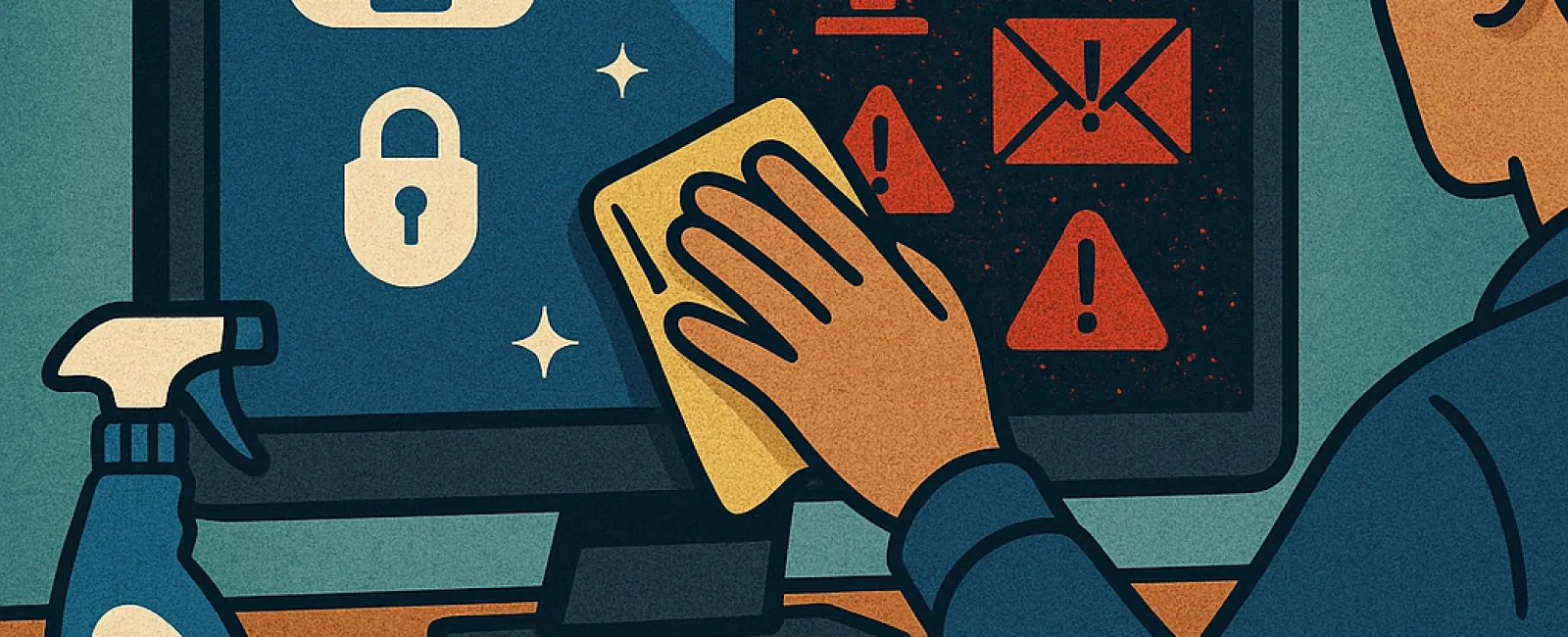September 08, 2025
Protecting your business from cyberattacks starts with mastering the fundamentals. According to IBM's 2023 Cost Of A Data Breach Report, an alarming 82% of data breaches involved cloud-stored information, and many of these incidents could have been avoided by implementing simple, foundational security measures.
This is where cyber hygiene becomes crucial—think of it as your business's daily routine for digital cleanliness. It may not be glamorous, but it's absolutely vital. Skipping these basic steps leaves your company vulnerable to serious risks.
Here are four essential cyber hygiene practices every small business must master:
1. Secure your network thoroughly.
Protect your internet connection by encrypting sensitive business data and deploying a robust firewall. Shield your WiFi network by hiding its Service Set Identifier (SSID), so your network name isn't publicly broadcast. Always password-protect your router. For remote team members, ensure they connect through a virtual private network (VPN) to maintain secure access from any location.
2. Empower your team with security knowledge.
Implement clear security policies to minimize risks stemming from human error. This includes enforcing strong password protocols, using multifactor authentication (MFA), establishing guidelines for safe internet use, and setting rules for handling sensitive information. Train employees to recognize phishing attempts and avoid downloading suspicious files.
3. Regularly back up critical data.
In case of a breach, system failure, or ransomware attack, having up-to-date backups ensures your business continues running smoothly. Make it a habit to back up essential files like documents, spreadsheets, HR records, financial data, and databases. Automate backups when possible, and store copies securely in the cloud or at an offsite location.
4. Restrict access to sensitive information.
Limiting data access dramatically reduces your exposure to breaches. Even if a breach occurs, restricted access helps protect your most sensitive information. Assign employees access only to the systems necessary for their roles, and avoid giving any single person full access. Reserve administrative privileges for trusted IT staff and key personnel. Don't forget to promptly remove access for former employees during offboarding.
Investing in Security Saves You from Greater Losses
While these security measures may seem like extra work, they are a small price to pay compared to the potential costs of data theft or operational shutdowns caused by cyberattacks. Prioritize these steps now to protect your business's future.
Ready to Stay Ahead of Cyber Threats?
If you're unsure how secure your business really is, now is the perfect time to assess. Our complimentary 15-Minute Discovery Call will reveal hidden vulnerabilities, pinpoint security gaps, and provide you with a clear, actionable strategy to boost your cyber hygiene—quickly and effectively. Click here or call us at 816-233-3777 to book your 15-Minute Discovery Call today.



